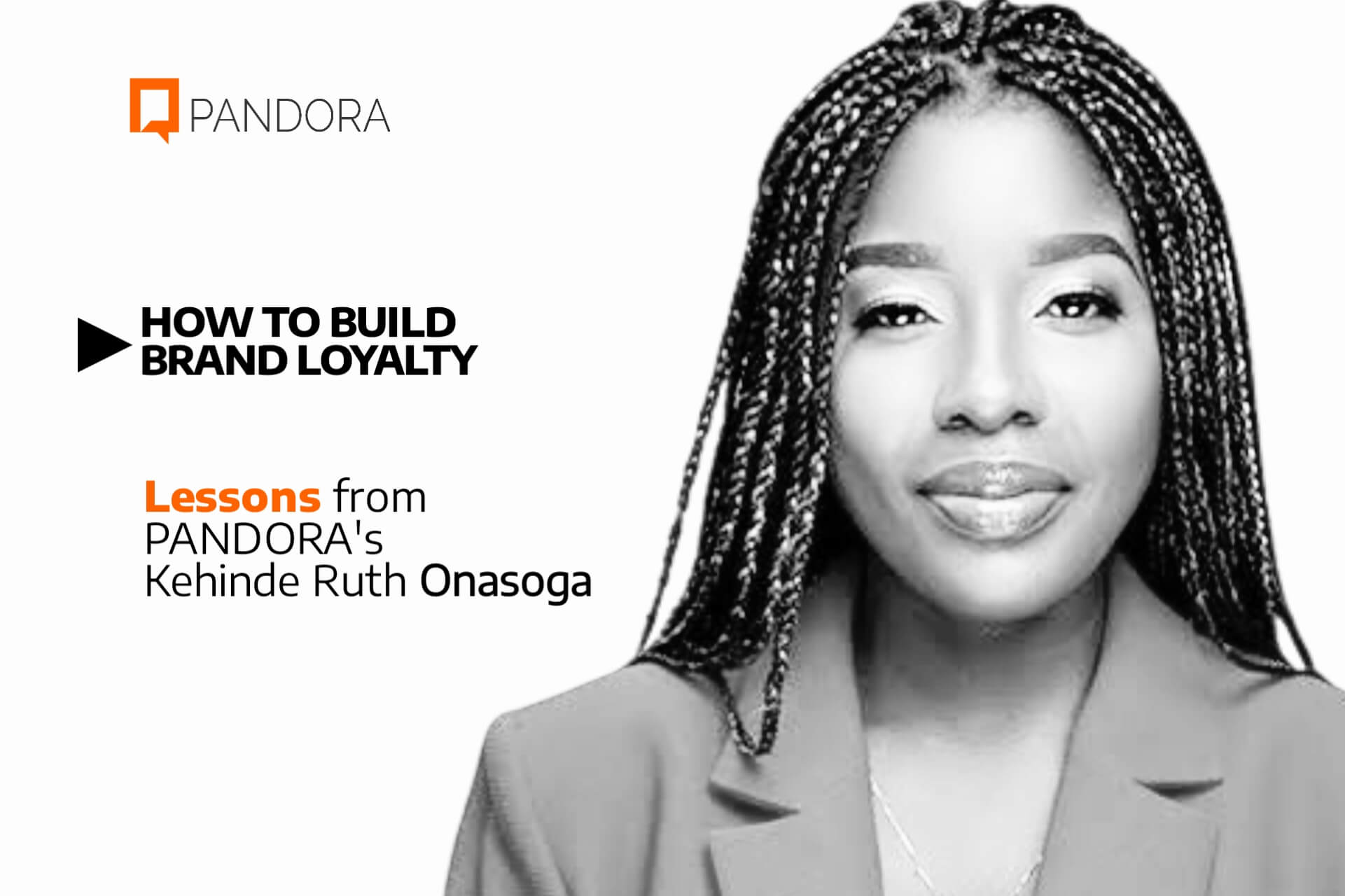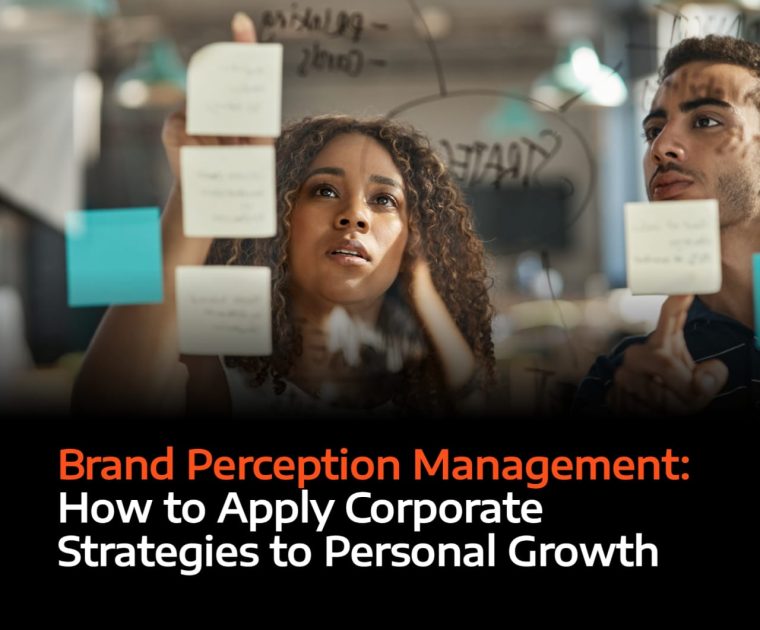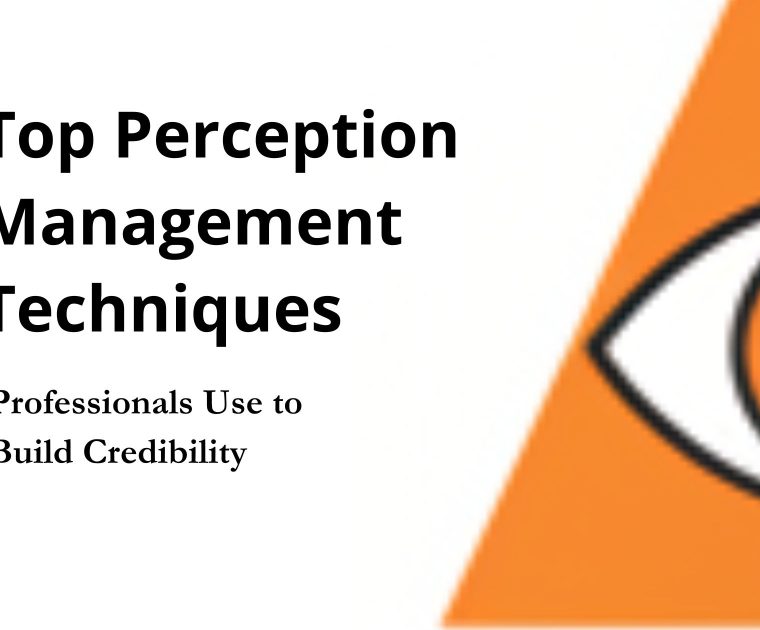The forward-thinking Principal Officer is enhancing brand loyalty through a four-tiered principle – relationship, trust, structure, and consistency.
It’s easy to imagine a successful brand – one that is making long-term profits and generating sustainable growth. Having such a business could be wonderful!
As the Principal Officer of Pandora Agency Ltd., one of Nigeria’s foremost marketing companies, KRO is motivated to build this vision. She understands that profit-making is a long-term project, one that lasts throughout a business’s lifetime and requires brand loyalty.
Chatting with the content team earlier this week, she led us to the principles that have helped us in building and maintaining brand loyalty at Pandora Agency Ltd.
“We Prioritize Relationship Over Profit,” says Pandora’s Principal Officer
Our chat with KRO revealed that the most important skill a brand owner can acquire if they’re looking to grow a real company is relationship building. That is the only way you get to understand your customers and be able to offer the value that they’re willing to pay for. Here’s how she puts it:
“We prioritize relationships over profits at Pandora. It has always been one of our very innate core values. Profits are good but when a client is not happy, it can affect other profits that may potentially come to an organization.”
Isn’t that genius? Look at it this way – every business needs to grow revenue in a consistent and stable way. There is no doubt about that! But when you stop ‘selling’ and start building relationships, you create trust and foster loyalty. We’re talking about the kind of loyalty that keeps your customers coming back. That is the philosophy that has guided her work with brands over the years. It’s like saying, let’s get to know you first, then we can talk about how we can help you.
“Trust Attracts Customers and Builds Loyalty”
KRO took us back to marketing, how it relates to building a loyal brand, how it works in our immediate environment, and the role of trust. When it comes to brand building, marketing plays a pivotal role in creating awareness and driving customer loyalty.
According to KRO, in Africa and, especially Nigeria where Pandora operates, it is common for business owners and marketers to assume they can solely achieve brand growth without the help of a marketing agency.
For them, once you have a product and a logo, you are good to go. But knowing that a brand is beyond those surface-level attributions, she sees the need to help businesses understand the implications and trust Pandora to help them grow.
The first step is to clarify what branding is not and what it is:
“Branding is not a logo. Your brand is a promise. At Pandora, our promise is very simple which is using “measurable marketing that drives creativity. This drives the creative approach in which we actually execute our branding strategies.”
So the key is to help customers to understand this. “I’ve come to understand that if you are able to show them that marketing for brand growth requires a clearly defined execution and measurable procedure, they’ll begin to see your point of view and develop trust in your process. That is how relationships are built.”
Put another way, you have to show that you genuinely care about their brand; you are willing to understand their values, and interested in communicating with them.
“Structure is Key to Maintaining Brand Loyalty”
KRO is keen on having a well-established structure as a framework for retaining a brand.
When we asked her about other strategies Pandora is using to foster brand loyalty, her answer was concise and straight to the point:
“Structure, excellence, ownership, and innovation are the cardinal strategies we employ to foster brand loyalty. Once you have all four, it is smooth sailing. There’s no way your client cannot be happy.”
Excellence, ownership, and innovation exist within a well-defined structure. A structure for her is that consistent pattern of doing things that allows you to effectively achieve marketing goals. Without a structure, you tend to feel disorganized, unmotivated, and overwhelmed.
Having a clearly defined structure, according to KRO, helps Pandora “consistently deliver on our brand promise. We ensure that the structure that is in place, the standard operating procedures (SOPs) is not eroded across all departments of the organization, while they are open for fine-tuning.”
She cited an example from Pandora’s Customer Success Department:
“In onboarding a new client, there is a structured pattern of communication. This includes how we respond to their questions and learn about their business to understand their values, operational procedures, and needs and ensure accountability for all parties.”
Here’s another thing we took out from her: having a well defined structure also helps everyone understand expectations. Your structure is like a roadmap and when a team member goes off course, they can easily trace back and measure their performance. It’s also a great way to build a strong brand identity.
She emphasized that excellence for Pandora revolves around delivering the value you promised your customers and doing that beyond expectations.
Explaining excellence, Kehinde cited an example of an account that wasn’t performing beyond expectations in a certain week at Pandora and how the team handled it:
“The following week, we had to innovate. We asked ourselves – what creative actions do we need to take to ensure the platform performs better than the previous week? This is also where we bring in ownership and innovation.”
“Consistency Turns Your Customers Into Brand Advocates”
Constantly delivering on your promise and creating positive customer interactions and offering support are other ways to sustain brand loyalty.
“Once you provide consistency of service and people see the value you render, they will remain with you. Consistently keep that promise you gave them and always measure your performance. Give them feedback. Consistently communicate with your clients even when things are not working well.”
This, according to KRO, is how Pandora keeps getting referrals from existing and past clients.
The Marketing Space is Quite Competitive, What More can a Business do to Maintain Brand Loyalty?
The answer is personalization.
“One of the reasons why Amazon is what it is now is because they’ve mastered the art of personalization. I think the Western world, really”, says KRO.
She cited the example of Starbucks and how they’ve set up a system that keeps a record of customers’ choices in order to offer personalized experiences. And that’s why they are able to make personalized recommendations for you.
“You want to ensure that you adopt a technology that can help you achieve that. At Pandora for instance, we keep records of our customers…” This includes the customer’s values, needs, and aspirations. Pandora gathers brand data, analyzes it, and develops strategies that resonate with the brand’s values and customers instead of offering generalized solutions.
In other words, there’s no one-size-that-fits-all approach in the way you should engage with your customers. Every client is unique and you should employ data-driven marketing strategies to ensure they have a personalized experience.
“Once you do that, the customer is happy. And at Pandora, it starts with our personalized structure.”
Summary: Lessons That Can Help Emerging Brands Build a Loyal Customer Base in Today’s Market
KRO’s lessons on how brands can build loyal customers is tied to having the right team, building relationships with customers and having a standard structure.
“…value the people that you have, learn to delegate. Always ensure you hire the right person for the right job. Set up structures, simplify the process, always do good research, and predict what your clients may need.”
That pretty much sums everything up, doesn’t it?
Thanks for reading.






Leave a Reply